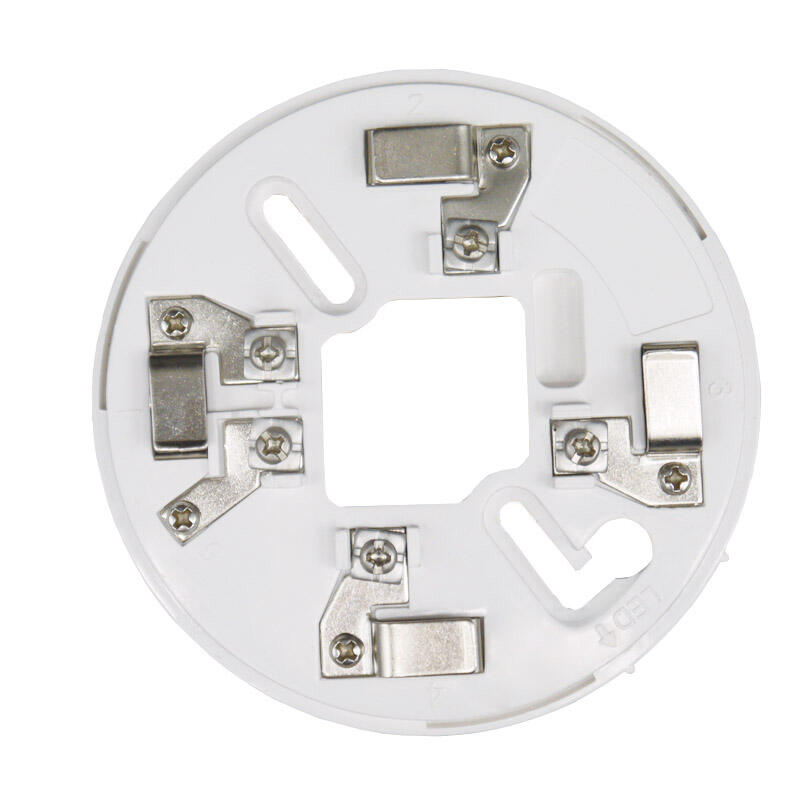Safety is paramount in refinery operations, where the processing of volatile materials demands constant vigilance. Flame detectors have emerged as an indispensable component of modern industrial safety systems, providing critical early warning capabilities that protect both personnel and valuable assets. These sophisticated devices serve as the first line of defense against potential fire hazards, utilizing advanced technology to monitor and detect the presence of flames in various industrial environments.
In today's complex refinery operations, the implementation of reliable fire detection systems has become more crucial than ever. With increasing regulatory requirements and the ever-present need to maintain operational efficiency, flame detectors offer a sophisticated solution that combines rapid response with exceptional accuracy. The technology behind these systems continues to evolve, providing refineries with enhanced protection against the potentially catastrophic consequences of uncontrolled fires.
The primary advantage of implementing flame detectors in refineries lies in their ability to provide immediate threat detection. These devices operate continuously, monitoring designated areas for any signs of fire, and can trigger automated response systems within milliseconds of detecting a flame. This rapid response capability significantly reduces the risk of fire spread and helps prevent major industrial accidents.
Modern flame detectors utilize multiple detection methods, including UV, IR, and combined UV/IR technologies, to minimize false alarms while maintaining high sensitivity to real threats. This multi-spectrum approach ensures reliable performance even in challenging industrial environments where smoke, steam, or other potential interferents are present.
While the initial investment in flame detection systems may seem substantial, the long-term financial benefits far outweigh the costs. These devices help prevent catastrophic equipment damage and potential facility shutdowns by enabling early intervention in fire situations. The resulting savings in terms of avoided damage, reduced insurance premiums, and maintained operational continuity make flame detectors a cost-effective safety solution.
Additionally, modern flame detectors require minimal maintenance and offer extended service life, contributing to their overall economic value. The ability to integrate these devices with existing safety systems further enhances their cost-effectiveness by streamlining facility-wide safety management.

Contemporary flame detectors employ sophisticated sensing technologies that can distinguish between actual flames and potential false trigger sources. Through the use of advanced algorithms and multiple spectrum analysis, these devices can accurately identify fire signatures while ignoring non-threatening radiation sources such as sunlight or artificial lighting.
The latest generation of flame detectors includes self-diagnostic capabilities that continuously monitor device health and performance. This ensures reliable operation and allows maintenance teams to address any issues before they impact the system's protective function.
Refineries present challenging operating conditions, including extreme temperatures, harsh weather, and the presence of corrosive substances. Modern flame detectors are designed to maintain optimal performance despite these challenges, featuring robust construction and environmental protection ratings suitable for industrial applications.
These devices can effectively operate in a wide range of atmospheric conditions and maintain sensitivity even in the presence of airborne particulates, steam, or other potential interferents common in refinery environments.
Modern flame detectors are designed to integrate smoothly with existing facility safety and control systems. They can communicate with fire alarm control panels, emergency shutdown systems, and facility management platforms through various industrial protocols. This integration capability ensures coordinated emergency response and enables comprehensive safety system monitoring.
The ability to network multiple flame detectors allows for creation of sophisticated detection zones and implementation of redundant coverage patterns. This networked approach enhances overall system reliability and provides more comprehensive facility protection.
Today's flame detectors often include advanced data logging and analysis capabilities. These features allow facility operators to track detection events, monitor system performance, and analyze trends that might indicate developing safety issues. The collected data can be used to optimize detector placement, adjust sensitivity settings, and improve overall safety system effectiveness.
Integration with modern industrial IoT platforms enables remote monitoring and management of flame detection systems, allowing for more efficient maintenance planning and faster response to potential issues.
Flame detectors play a crucial role in helping refineries meet stringent safety regulations and industry standards. These devices typically carry various certifications and approvals from recognized testing authorities, ensuring they meet or exceed required performance and reliability standards.
The implementation of certified flame detection systems helps facilities demonstrate their commitment to safety and compliance with regulatory requirements, potentially reducing liability exposure and insurance costs.
Modern flame detectors come with comprehensive documentation regarding their performance specifications, testing procedures, and maintenance requirements. This documentation supports facility safety audits and helps maintain compliance with regulatory record-keeping requirements.
Regular testing and certification of flame detection systems provide documented evidence of proper system function and maintenance, which is essential for regulatory compliance and risk management purposes.
Regular testing of flame detectors is essential to ensure reliable operation. Most manufacturers recommend monthly functional tests and annual comprehensive performance evaluations. However, specific testing frequencies may vary based on environmental conditions, regulatory requirements, and facility safety protocols.
Modern flame detectors are designed for long-term operation and typically have a service life of 5-10 years when properly maintained. However, actual lifetime can vary depending on environmental conditions, usage patterns, and maintenance practices.
Yes, many flame detectors are specifically designed and certified for use in hazardous areas. These devices carry appropriate explosion-proof certifications (such as ATEX or IECEx) and can safely operate in potentially explosive atmospheres commonly found in refineries.

Copyright © 2026 RISOL TECH LTD All Rights Reserved Privacy policy